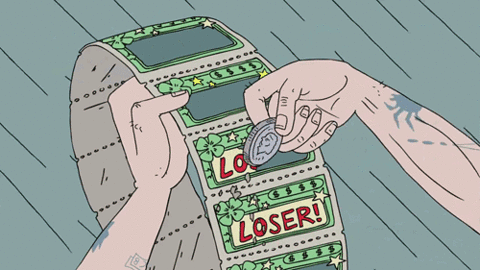
Children cannot suffer from psychic disorders.
Fact: every fifth child suffered an episode of psychic disorder at least once. They often don't get the necessary help because no one pays attention to them. Children, like adults, suffer from anxiety, depression, and many other diseases.
False
True
Depression is doubled sadness
Although the constant feeling of sadness is often a sign of depression, these notions are not synonyms. Sadness is passing and temporal. Sorrow is a more serious feeling involving life experience and powerful recollections, but it comes and passes too - this is not a constant. While depression is a chronic state.
False
True
Problems related to psychic health can result in problems with physical health in the future.
Emotional symptoms are often perceived as the main characteristic related to psychic disorders. But this is not so. Many people suffering from such diagnoses complain about the problems of exact physical nature.
False
True
The risk of inheriting depression can be very high.
Yes, there's genetic proneness to depression. However, the risk in relation to healthy people increases only by 10-15%.
False
True
Dementia and Alzheimer's disease are one and the same. They mean the loss of memory.
As a matter of fact, dementia is a syndrome (i.e. the combination of symptoms), which can have many causes, and Alzheimer's disease is one of them.
False
True
Alzheimer's disease is genetically instilled, destiny can't be changed. You can only postpone the onset of the disease or ease the symptoms.
Unfortunately, there's no guarantee that training of the brain and the changes of lifestyle will prevent all types of dementia - but this is not an excuse to ignore them. There are ways, which decrease the disease risk or postpone its onset - they can be boring, trivial and time-consuming but they work. The point is not to let the brain be inactive: it's necessary to train short-time memory, attention, speech, logic, reaction time, hand and eye coordination.
False
True
Anorexia is a strong desire to lose weight.
Indeed, anorexia looks this way to onlookers - a person wants to lose weight badly and get his or her body into an ideal state while not being able to stop on when it's necessary. The majority of people think that this is the whole problem. Actually, anorexia is a severe eating behavior disorder. This is a version of eating dependence, which differs little from drug addiction and alcoholism.
False
True
People with mental disorders can keep working.
Sometimes the disease can spoil almost all areas of life but not affect work. Many things depend on the diagnosis and the severeness of the disease. A person who takes medicines and restrains the disease can easily match his or her healthy colleagues. That's why it's wrong to equate all patients to the disabled.
False
True
Problems with mental health can affect even very strong and willed people.
Psychiatric diagnoses are made regardless of character strength. Mental health can fail because of a problem in the organism or traumatic experience.
False
True
Mental disorders are not curable
Patients with psychic disorders control the disease and recover at least partially. For example, when a person reaches out to a doctor, the degree of his depression can be defined as 100%. After taking medicines and regular psychotherapeutic consultations, this level drops to 60%. The patient feels better, he or she starts following the regime and going in for sports, the level of depression comes to 40%.
False
True
Practicing psychotherapist
You've been around the block once or twice. You take an interest in this subject, and you look for answers to the most difficult questions in books and scientific papers. It's you who your friends seek advice from in case of unwellness or some suspicions. You help everybody and give sound advice. Let's check how well they learned your lessons!
In-home psychotherapist
You take an interest in the issues of mental health amateurishly. Probably, you don't know all the details, but you do have the general and basic knowledge. This subject is close to you but you haven't managed to find answers to the most difficult questions. Instead, you're good at giving help to your friends who seek your advice. Tell the friends about your result. Let's check how well they learned your lessons!
Beginner psychotherapist or psychologist
You aren't good at the issues of mental health yet. You cannot distinguish a psychologist, a psychiatrist and a psychotherapist. Their work seems to you silly and futile. Probably, you're interested in this subject but you still have to find answers to the most difficult questions. Tell the friends about your result. Let's check what they know about mental health.









